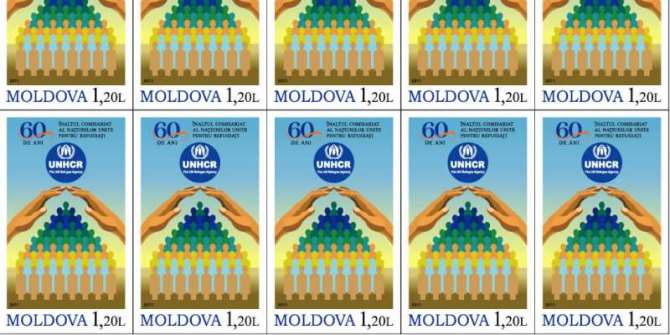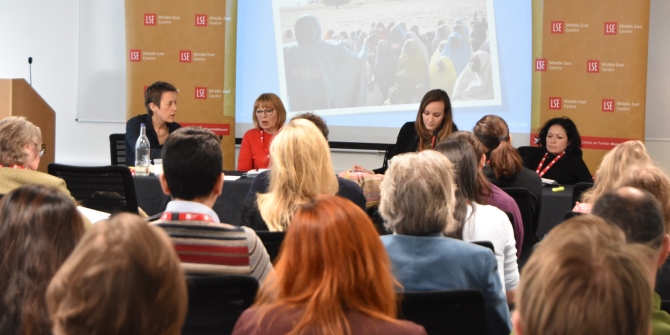by Elspeth Guild

In September 2016 the UN adopted a resolution calling for the negotiation of two new-style UN agreements – a Compact on Safe, Orderly and Regular Migration (GCM) and one on Refugees (GCR). These Compacts were to enjoy a year of stock-taking and fact finding and then a year of negotiation. Both were adopted by the UN General Assembly in December 2018 by an overwhelming majority of states, 164 signing up to the GCM (five votes against and 12 abstentions) and 181 signed the GCR (two against and three abstentions). Yet, the international community has been fascinated by the dissent to the two Compacts, almost to the point of forgetting the enormous support which they received. In this blog I look at the dissenters to identify what the fuss was about.
In December 2017, the USA government withdrew from the negotiation of the GCM on the grounds of safeguarding its sovereignty. It continued in the GCR negotiations only to vote against it in the General Assembly. So from the beginning of the negotiations of the GCM in January 2018, it was clear that the USA would either abstain or vote against the result. By Spring 2018, the Hungarian government announced that it was also pulling out of the GCM again to safeguard state sovereignty. Like the USA it would vote against both the GCM and the GCR. However, the international community was fairly relaxed about the negative position of these two states as Trump’s USA and Orban’s Hungary are not considered ‘normal’ states, particularly on the issue of migrants and refugees. The leaders of both states have demonised foreigners and painted them as the source of all social, cultural and economic ills of their states so castigating international cooperation around migration and refugee protection speaks to their supporters.
But by the beginning of October 2018, two months after the final text of both Compacts had been agreed, the Austrian government announced it would vote against the GCM and suddenly the Compacts were in the news in a number of states where a strong radical right constituency is present in parliament. The states which voted against the GCM in December were: the Czech Republic, Hungary, Israel, Poland, and the USA. Twelve more countries abstained in the vote: Algeria, Australia, Austria, Bulgaria, Chile, Italy, Latvia, Libya, Liechtenstein, Romania, Singapore and Switzerland. The most shameful case is that of Switzerland which, together with Mexico, had been the co-facilitator of the GCM leading the negotiations. The vote on the GCR was even odder than that of the GCM. While Hungary and the USA voted against it, Eritrea, Liberia and Libya abstained. Presumably pressure had been applied to a few targeted African states to vote against the agreements.
What does this tell us about the new ‘normal’? First, a number of states which the press had indicated would vote against because they are client states of the USA, like the Dominican Republic, ultimately voted in favour of the GCM. Secondly, the majority of the states voting against the GCM were in Europe: the Czech Republic, Hungary and Poland (3 out of 5). Of those abstaining: Austria, Bulgaria, Italy, Latvia, Liechtenstein, Romania and Switzerland (7 out of 12) are in Europe. So if there is a new ‘normal’ it may primarily apply to Europe.
Two things seem to be particularly salient to the possible new ‘normal’ in Europe where anti-migrant sentiment can be mobilised very rapidly even to disrupt a UN process which is almost complete. First is the embrace of radical right wing parties into coalitions. Some of the states which voted against or abstained have coalition governments which include radical right parties (Austria, Italy, Switzerland) but not all. Romania voted in a left leaning coalition in 2017 but abstained in the GCM vote. Secondly, governments in Europe are increasingly vulnerable to sustained far-right social media campaigns. An article published on 8 January 2019 in Politico, demonstrates exactly how a coordinated the online campaign was carried out by far right activists across Europe. Relying mainly on Twitter and YouTube but crossing a number of language divides, these activists worked in a highly coordinated manner to push public policy against the GCM. Austria was apparently the easiest target with a collation which includes a far right party. It was closely followed by Italy with the same configuration in parliament. In Switzerland (and its smaller neighbour Liechtenstein) the anti-migration far right has been triumphant for more than ten years, only recently suffering defeats in four referenda with the establishment of a strong anti-radical right coalition.
Anti-migration debates with roots in these social media campaigns are active in the Netherlands and Belgium (both with current or recent coalitions including far right parties). In Belgium, the radical right managed to push the right wing party in the coalition to topple the government over the GCM, which came as a shock to political leaders in Europe. While Belgian governments have a reputation for being fragile, that a government could fall over such an esoteric matter as the GCM pushed by radical right activists working on a right wing coalition partner sent shivers down political spines across the continent. The former Eastern bloc states – Bulgaria, the Czech Republic, Hungary, Latvia, Poland and Romania – have made a name for themselves in the EU as being bitterly opposed to any refugee protection and migration which includes Muslims. The Hungarian president expresses this most openly, followed more quietly by others. That radical right activists coalesce around the issue across these borders is not surprising and it is an easy fit into official discourses of political leaders.
The fate of the GCM and GCR does not bode well for Europe. It has revealed an ugly, racist undercurrent which can be mobilised quickly, effectively and transnationally. Language barriers are no longer hurdles for this radical right and border controls have been abolished among most of them.
 Elspeth Guild is Jean Monnet Professor ad personam at Queen Mary University of London as well as at the Radboud University Nijmegen, Netherlands. She is also a partner at the London law firm, Kingsley Napley She is also a visiting Professor at the College of Europe, Bruges. Professor Guild provides regular advice to the European Parliament, the European Commission, the Council of Europe and other European and international organizations (such as the UNHCR) on free movement of persons, migration and asylum. Professor Guild is co-chair of the European Sub Committee, Immigration Law Practitioners Association, the UK legal profession’s voice on immigration and asylum matters.
Elspeth Guild is Jean Monnet Professor ad personam at Queen Mary University of London as well as at the Radboud University Nijmegen, Netherlands. She is also a partner at the London law firm, Kingsley Napley She is also a visiting Professor at the College of Europe, Bruges. Professor Guild provides regular advice to the European Parliament, the European Commission, the Council of Europe and other European and international organizations (such as the UNHCR) on free movement of persons, migration and asylum. Professor Guild is co-chair of the European Sub Committee, Immigration Law Practitioners Association, the UK legal profession’s voice on immigration and asylum matters.
This blog post and the others in the series are based on presentations during a workshop convened by the MEC on 1 March 2019 discussing statelessness and legal identity in the context of migration. @BronwenManby
In this series:
- Preventing Statelessness among Migrants in North Africa and their Children: Birth registration and ‘legal identity’ by Bronwen Manby
- State Obligation to Establish Legal Identity in Comparative Perspective by Alenka Prvinšek Persoglio
- Civil Registration and Legal Identity in Humanitarian Settings by Ann Livingston
- Preventing Statelessness among Undocumented Migrants: The role of the International Organization for Migration by Anne Althaus & Laura Parker
- From Birth Registration to Confirmation of Citizenship: Is the UK process the model to aspire to? by Elan Schwarz and Brianna Gomez
- What is the Fuss over the UN’s Global Compact for Safe, Orderly and Regular Migration? by Elspeth Guild
- When Identity Documents and Registration Produce Exclusion: Lessons from Rohingya Experiences in Myanmar by Natalie Brinham
- Consular Protection, Legal Identity and Migrants’ Rights: Time for Convergence? by Stefanie Grant
- Obstacles to Accessing Civil Registration and Identification: NRC’s Field Experiences with Displaced Persons by Fernando de Medina-Rosales
- Defining Identity and Identifying Migrants in the Global Compact for Migration by Tendayi Bloom






